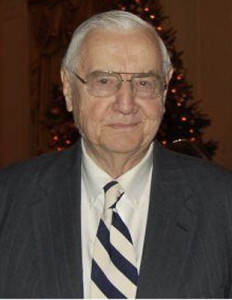Since the start of my research on Peoples Temple and Jonestown over a year ago, I have discovered the different aspects to this tragic saga, whilst hearing some fascinating life stories along the way. The final goal of this research is to film a documentary around personal accounts of people associated with Peoples Temple. By this, I don’t just mean their stories of Jonestown, but their stories after the tragedy, and how they moved on from it. One thing I have taken from the survivors I have spoken to is their optimism. They are open about their past and are able to reflect on it, but they also look to the future and use their experiences within Peoples Temple to aid their life choices.
It is not just survivors I have spoken to, though. A film researcher named Bob Helms was very helpful in getting me on my way with Peoples Temple and Jonestown research. Incredibly knowledgeable on the subject, he steered me to people who may speak of their experiences and be of most use to my research.
More recently, I have been in contact with Lester Kinsolving, the journalist who first investigated Peoples Temple. He mostly spoke of his anger at the press for not investigating the cult before it was too late, in particular The San Francisco Examiner for axing his eight-piece series on Peoples Temple after only four installments had appeared. Lester never received an apology from the newspaper for its actions. If the paper had published the rest of the series, he believes it could have helped bring light to the workings of Peoples Temple and the tragedy may never have occurred.
It was interesting to listen to views of an outsider – an enemy, in fact, of Peoples Temple – and his take on the organisation at the time. I had read and heard a lot about the workings of Jim Jones’ following, but not so much about the response from the media and external sources at the time. Lester talked about the fear within the media and the power in numbers that Peoples Temple had. An advocate for free press, he feels it imperative that media companies do not feel threatened by organisations and religious groups, and they should publish correct information, even if that information goes against the grain of society at the time.
Jim Jones was widely regarded as a very good-willed and charitable man, and it was hard for anybody to swallow anything but this. An ex-Peoples Temple pastor, David Parker Wise, told me Jim Jones “had both good and bad in him.” However, it is easier for the media to see things in black and white – portraying somebody as either good or bad – rather than juxtaposing characteristics. It must be hard for a media outlet to go against the grain of common consensus, especially when you’re up against somebody who was regarded by so many as a great humanitarian and philanthropist. So when Lester Kinsolving put together his eight articles questioning the motives of Jim Jones, it must have been uneasy for The San Francisco Examiner to publish them, knowing the potential backlash, in particular from Jones’ followers. The mounting pressure on the paper from Jones’s followers ultimately proved too much, and they made the decision to abort the series.
I was surprised by the multitude of opinions on Jim Jones and Peoples Temple. The overwhelming representation of Jim Jones within the media is of a deluded man on a psychotic power trip. These thoughts are also amongst Jonestown survivors, but there is more empathy for him than I was expecting. Many people couldn’t dismiss his work in the early years as a front for less savoury and sinister ultimate goals. It’s not hard to understand why: these people looked up to, even idolised this man for years – in some cases a large proportion of their life – and so it must be hard to completely turn your back on somebody you once respected so much.
One ex-Temple member I spoke to over the phone told me of communalist groups he has joined since leaving Jonestown. This surprised me, as I assumed (perhaps naively) that an experience like Jonestown would deter somebody from being involved in communes again. It does seem like there is something instilled in one’s personality that makes them more inclined to be part of groups, in whatever form that may be. He told me that he only gave in on socialism when the Berlin Wall came down. It wasn’t that he’d lost his socialist beliefs, rather that he realised at this point that socialism didn’t really work. He still believes in sharing, communalism, and left-wing politics, but he has realised that far-left politics on an international scale are more idealistic rather than realistic. This was one of the main downfall of Peoples Temple: they were so focussed on the grand scale of things that it became “us against them.” Jim Jones successfully alienated himself and his followers from America, when in reality it was far too early for them to survive as a secluded community. Nor do I believe it is healthy for such a thing to exist: communities and nations need to interact with one another, even if they do not share the same ideals and politics. Peoples Temple was not inclusive, nor were they transparent, and this was their major failing. Once Jim Jones started alienating his people from the rest of America, there was no going back.
I am still looking for former Temple members – whatever your point of view – to talk to me about your experience in the Temple and life afterwards. I’m also interested in the stories of people who had interesting interactions with the Temple. Please contact me at martinenglish@boastfulfilms.com.
